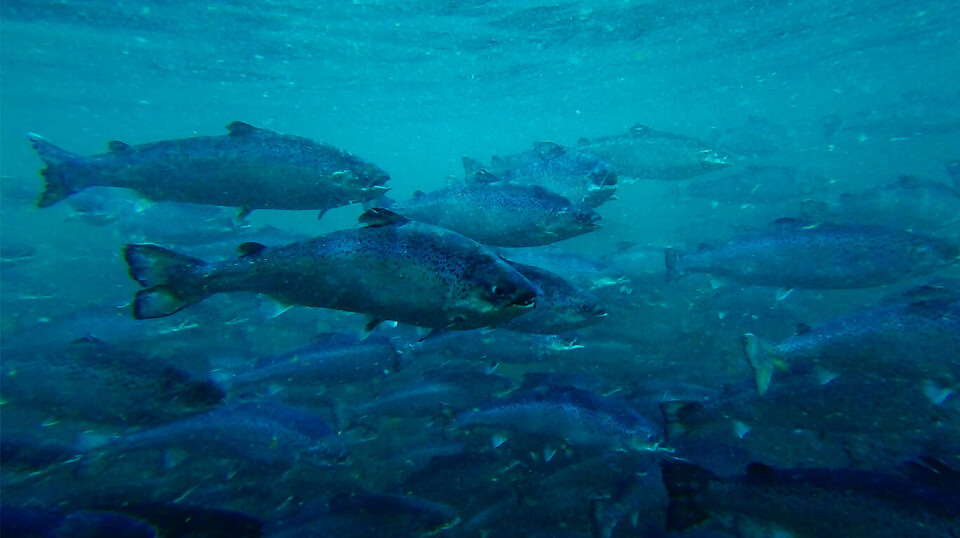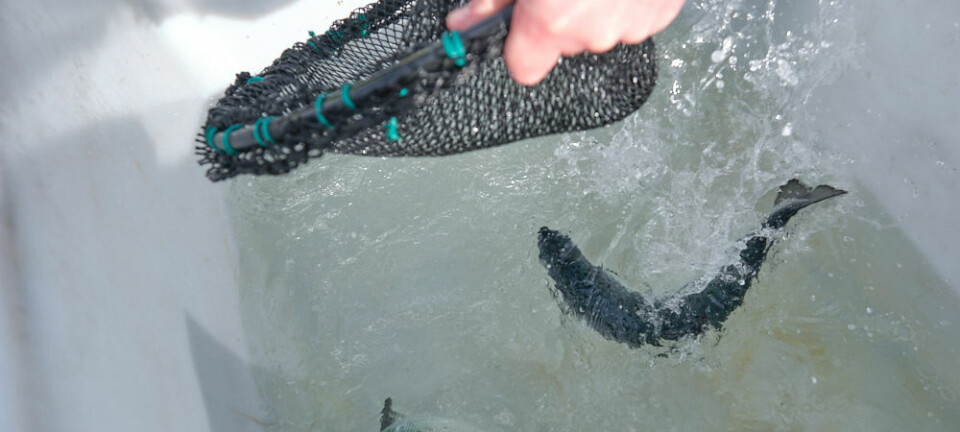
Land-based salmon farmer ‘has AGD mortality under control’
At the end of April, Salmon Evolution reported increased mortality linked to acute gill problems. The Norwegian company says it is now on top of the problem.
“The increased mortality reported at the end of April was triggered by AGD (amoebic gill disease), caused problems with gill health and is an important reminder of the biological aspect of the operation,” Salmon Evolution said in its report for the first quarter of 2022 today.
The company wrote that it has taken quick and appropriate measures to rectify the situation, including reduced temperatures and feeding, increased UV (ultraviolet) dosage on intake water, rapid culling of batch 2 in a historically strong market and freshwater treatment of all remaining fish groups.
The freshwater treatment was carried out using a wellboat and was finished on 19 May. The treatment was carried out not only on those groups of fish with increased mortality, but as a preventive measure on all fish.
Even with fish sizes that were smaller than desired, an average price of NOK 95 (£7.00) per kilo was obtained for the fish. The superior share was also high.
“The freshwater treatment seems to have had a good effect, and the situation is now stabilising with daily mortality returning to normal levels after freshwater treatment. The company has also started feeding the entire facility again and is monitoring the situation closely,” the company said.
Furthermore, Salmon Evolution has implemented a number of measures to minimise the risk of such an incident occurring in the future.
These include, among other things, capacity for on-site freshwater production to be installed over the next couple of weeks to reduce response time to a minimum and enabling preventive freshwater treatments, for example in connection with fish transfers.
Rented freshwater unit
During the presentation of the report, chief executive Trond Håkon Schaug-Pettersen said that the freshwater unit will be a mobile facility rented initially for six months, which gives the company time to evaluate whether this is the right thing to acquire permanently. He estimates the cost of this rent at a couple of million kroner.
Regarding the cost of the AGD incident, he said that it is still too early to say this exactly, but that it was not a question of significant sums, as although the mortality had been increased, it had not been great.
“Salmon farming is a complex operation and unexpected things can and will happen, which underlines the importance of having a strong and capable organisation. The incident demonstrated the value of being located in the heart of the aquaculture cluster with solid access to competent people and suppliers and relevant infrastructure,” the company points out in its report.
In a press release accompanying the report, Schaug-Pettersen says he is happy to see that the decisive actions taken in recent weeks are now stabilising the situation and enabling the company to return to production mode.
“The successfully implemented freshwater treatment also provides invaluable operating experience that will strengthen our abilities to tackle challenges going forward,” he says.
Highlights of Q1
Among the highlights from the first quarter, the company lists the following points:
- Continued increase in production at Indre Harøy. Batch 5 in stock in February and all-time high biomass production of 320 tonnes in March, with standing biomass reaching almost 1,500 tonnes by 31 March.
- Focus on international expansion plans, both in South Korea and North America.
- Indre Harøy phase 2 preparations are under way, and there are clear signs of normalisation in the construction market
- Signed agreement with DNB and Nordea on a new green debt financing package of a total of NOK 1.55 billion related to phases 1 and 2 at Indre Harøy.
- Available liquidity of NOK 454 million as of 31 March 2023 including committed unused credit facilities.
Notable events after the end of the quarter, apart from the AGD event, were:
- Completed takeover of the last two remaining tanks in phase 1 at Indre Harøy on 17 April 2023.
- Carried out NOK 525m private placement on 18 April 2023 as part of Indre Harøy phase 2 financing.
- The increase in biomass production continued in the first quarter with the group having a net biomass production of around 740 tonnes and an all-time high biomass production of around 320 tonnes in March alone. As of 31 March 2023, the company had a total standing biomass of almost 1,500 tonnes.
- Phase 1 of Indre Harøy was completed in April 2023.
“With all 12 tanks completed, this will give the opportunity to streamline the production process with both production lines in full operation,” wrote Salmon Evolution. “The preparatory activities for phase 2 continued in the quarter. The company has not given any contractual obligations but is in advanced negotiations with contractors for phase 2 construction. The plan is to start construction during the second half of 2023.”
South Korea and North America
Work on the international expansion plans in South Korea through K Smart Farming - a joint venture with Dongwon Industries - and in North America continued in the quarter.
“90% design review for the smolt site in South Korea was completed as planned and work on the rearing site has been intensified,” wrote the company.
In parallel, the permit processes continued with important clarifications received with regard to central permits.
In North America, the company continues to evaluate identified potential production sites, as well as maintaining dialogue with various public and private stakeholders.
Summary and outlook
Since the start-up at the Indre Harøy plant for approximately 14 months ago, the company has gradually stepped up production and a total of five batches have been deployed. Two smolt releases are planned for the second quarter, and a further three are planned for the second half of 2023. The company now employs 65 people.
“Salmon Evolution continues to see a significant demand growth potential for salmon, and the company believes that land-based farming must play an important role together with conventional farming for the industry to be able to exploit the demand potential. With phase 1 at Indre Harøy now completed and with a strong financial platform, Salmon Evolution is in a unique position to continue to lead and shape the development of this industry,” the company said.
The company did not harvest fish in the first quarter.























































